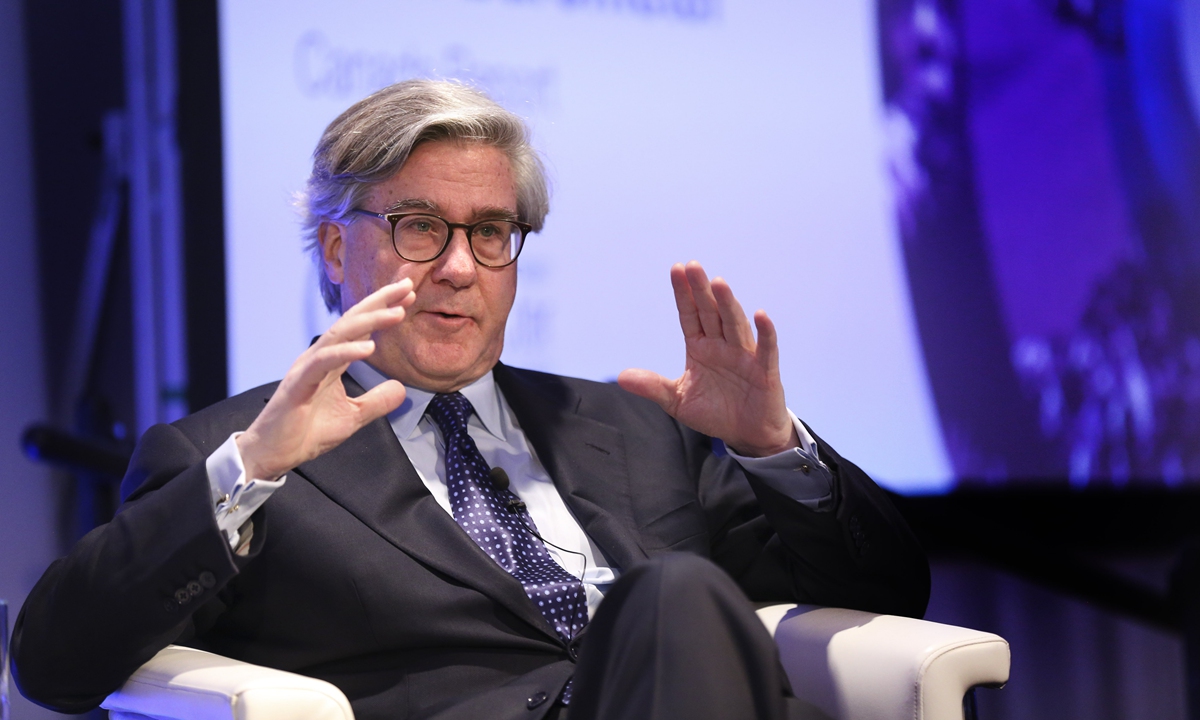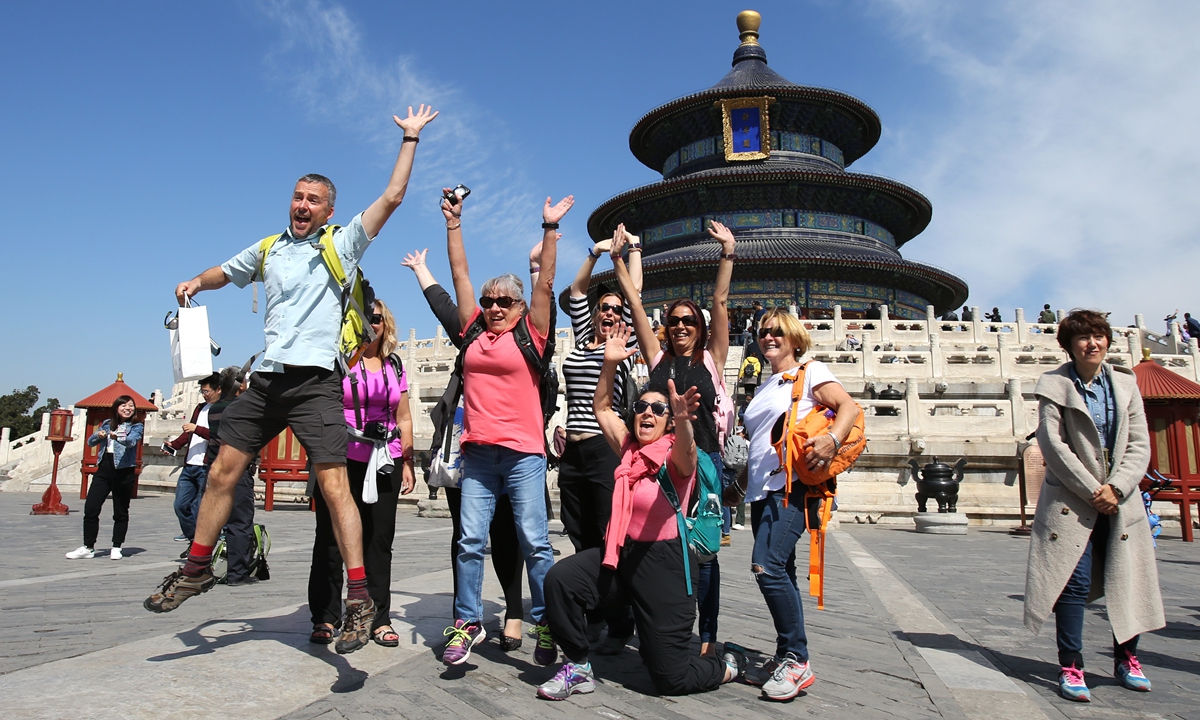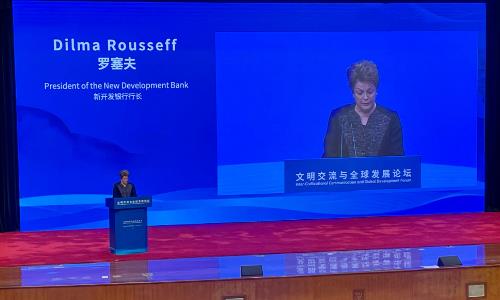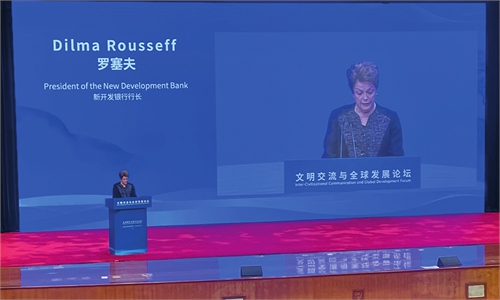
John L. Thornton, chair emeritus of the US Brookings Institution Photo: VCG
The China-proposed Global Civilization Initiative (GCI) and Global Development Initiative (GDI) are widely welcomed and well received, and if these goals can be achieved, the whole world will applaud, said John L. Thornton, chair emeritus of the US Brookings Institution. He believes the aspiration China has is admirable, and it would be a step forward for mankind.
"As the world gets smaller in mental and physical distance, it's very important that we understand each other. China's taking the lead and promoting dialogue among different civilizations is very meaningful and necessary," Thornton, who was attending the Inter-Civilizational Communication and Global Development Forum held in Beijing, told the Global Times on the sideline of the forum.
Hosted by the Party School of the Central Committee of the Communist Party of China (CPC), the three-day forum concluded on Thursday, attracting around 150 experts from more than 30 countries and regions. Politicians, entrepreneurs, think tank experts, scholars, cultural ambassadors, and diplomatic envoys from China and abroad gathered together to discuss issues concerning communication among civilizations and global development.
"More and more people have come to the realization that rather than amassing material wealth, the most pressing task is to find a guiding beacon for the sustainable development of human civilization, because we all care about our future," said Thornton during his speech at the opening ceremony of the forum.
'No other way'
Thornton was quoting a white paper titled A Global Community of Shared Future: China's Proposals and Actions, which was published by China's State Council Information Office in September.
Hailing China's role in promoting dialogue among civilizations, Thornton said that understanding is a necessary condition for countries to see each other's points of view, and in such a way as to advance any number of important agendas.
"I respect China's insistence on a collective focus on this issue, of what kind of world we wish to create. I admire China's effort to define what they see as the future of this Earth and of mankind. I find it inspiring. I believe China's invitation for the rest of the world to engage in a dialogue of civilizations is also exactly the right spirit with which to pursue the answer to these questions. In fact, I can think of no other way to do it," he said.
Thornton, the ex-head of Goldman, with his extensive experience in bridging the gap between the East and the West, as well as expertise in economics, emphasized that mutual understanding is the cornerstone of international diplomacy. The China-US cultural symbiosis is not just a conduit for shared knowledge and experiences but is a catalyst for global economic stability and peace.
The dialogue of cultures across the Pacific has been a journey of shared aspirations. Thornton highlighted the numerous students, scholars, and artists who cross these cultural bridges, carrying back insights that pave the way for a more integrated global community.
Thornton pointed out that China, with its rich cultural heritage and its trajectory of rapid modernization, offers a unique blend of history and future-oriented dynamism. He referred to a recent survey and a few focus groups of ordinary Americans on topics such as China-US relations, China, and ordinary Americans' attitudes toward Chinese people.
One finding was that ordinary Americans value Chinese culture and traditions... Another interesting point that emerged from the survey was ordinary Americans think that the US and China can share common causes providing safety and security in the world, he added.
Incalculable impact
"Nothing beats seeing a place with one's own eyes and experiencing personally," said Thornton. He encouraged more American tourists to visit China, which would have an incalculable impact in deepening understanding and promoting dialogue.
Thornton drew upon his own experience living in China, noting that many aspects of China greatly impressed him, such as China's long and rich history. "At the other end of the spectrum of it is the sort of sheer rate of change and the rate of innovation, and the desire on the part of the people to build a better life. It's quite amazing, impressive, and inspirational."
Foreign tourists enjoy themselves at Tiantan, a UNESCO World Heritage Site built in 1420, in Beijing. Photo: VCG
Thornton went into further detail and shed a light on the profound importance of cultural exchanges between these two countries. As the world's two largest economies, the importance of maintaining robust China-US relations extends beyond bilateral benefits. It is a global necessity. As Thornton noted, the ripple effect of their cooperation or conflict has the potential to affect every corner of the globe. The interconnectedness of modern challenges dictates that a cooperative approach is not optional but essential.
The significance of China-US ties to the world order is underscored by the collaboration in tackling global crises, such as climate change, pandemic responses, or the advocacy for peace in conflict-ridden regions. Thornton underscored the role of the US and China in the Paris Agreement on climate change and the collaboration during the global health crisis triggered by COVID-19 as quintessential examples.
Thornton's insights illuminate a path forward that is paved with shared cultural experiences, mutual respect, and a dedication to peace and progress. He advocates for a vision in which the two countries not only coexist but thrive through mutual enrichment.



